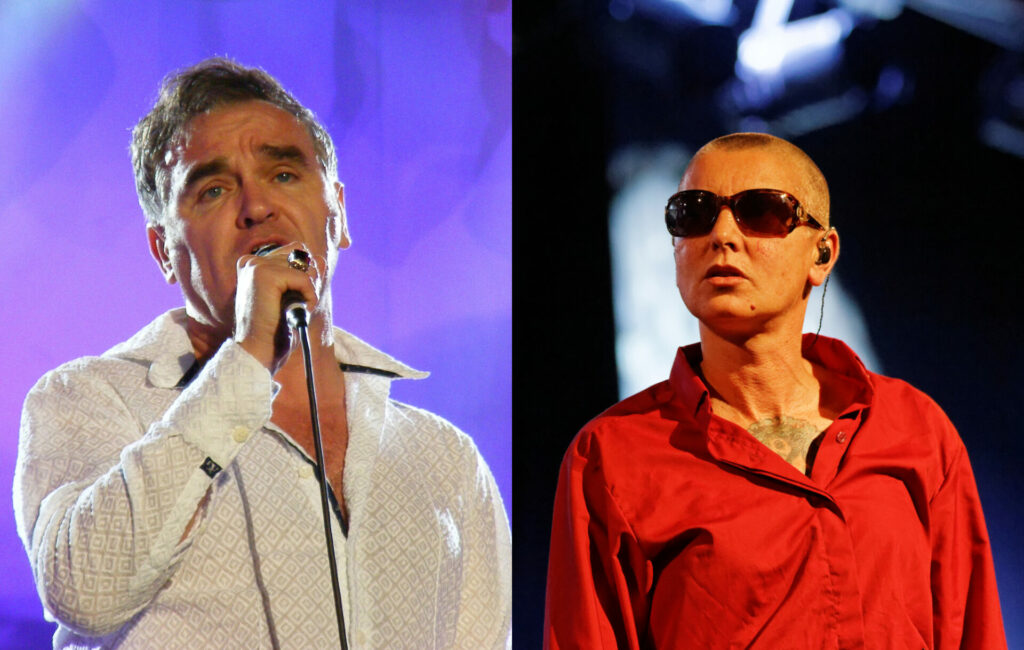Morrissey rallies against music industry after death of Sinéad O’Connor
'She had the courage to speak when everyone else stayed safely silent'
By Joe Goggins

Morrissey has lashed out at music industry figures who have paid tribute to the late Sinéad O’Connor.
In an angry statement shared to his website, the former Smiths frontman criticised figures from within the music community, without naming specific names, for what her perceives as their hypocritical eulogising of a singer they failed to support during her lifetime. “There is a certain music industry hatred for singers who don’t ‘fit in’ (this I know only too well), and they are never praised until death – when, finally, they can’t answer back,” he wrote on morrisseycentral.com. “You praise her now ONLY because it is too late. You hadn’t the guts to support her when she was alive and she was looking for you.”
“The press will label artists as pests because of what they withhold … and they would call Sinéad sad, fat, shocking, insane … oh but not today!” he continued. “Music CEOs who had put on their most charming smile as they refused her for their roster are queueing-up to call her a ‘feminist icon’, and 15 minute celebrities and goblins from hell and record labels of artificially aroused diversity are squeezing onto Twitter to twitter their jibber-jabber … when it was YOU who talked Sinéad into giving up … because she refused to be labelled, and she was degraded, as those few who move the world are always degraded.”
O’Connor faced frequent public criticism and relentless media scrutiny over the course of her career, especially in relation to her criticism of the Catholic Church, her conversion to Islam, her experience with mental illness and her relentless non-conformism in art and life. Morrissey drew comparisons with other female singers who died before their time, specifically Billie Holiday, Marilyn Monroe, Judy Garland, Whitney Houston and Amy Winehouse, and said in tribute: “She was a challenge, and she couldn’t be boxed-up, and she had the courage to speak when everyone else stayed safely silent. She was harassed simply for being herself. Her eyes finally closed in search of a soul she could call her own.”
Morrissey was on record as a long-standing fan of O’Connor, whose association with The Smiths went further; the band’s bassist and drummer, Andy Rourke and Mike Joyce, both played with O’Connor, with the former having contributed to her 1990 second album, I Do Not Want What I Haven’t Got.
